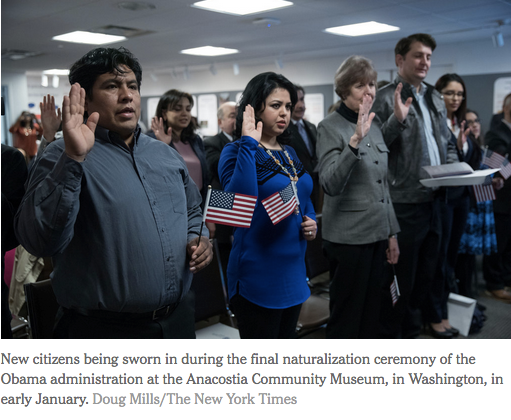The form that people seeking American citizenship must complete, he added, asks whether the applicant had ever committed a criminal offense, however minor, even if there was no arrest.
“If I answer that question no, 20 years after I was naturalized as a citizen, you can knock on my door and say, ‘Guess what, you’re not an American citizen after all’?” Chief Justice Roberts asked.
Robert A. Parker, a Justice Department lawyer, said the offense had to be disclosed. Chief Justice Roberts seemed shocked. “Oh, come on,” he said.
The chief justice asked again whether someone’s citizenship could turn on such an omission.
Mr. Parker did not back down. “If we can prove that you deliberately lied in answering that question, then yes,” he said.
The exchange was among several moments of indignation and incredulity during the argument in Maslenjak v. United States, No. 16-309. Several justices seemed taken aback by Mr. Parker’s unyielding position that the government may revoke the citizenship of Americans who made even trivial misstatements in their naturalization proceedings.




